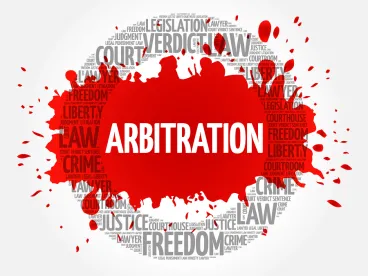California employers received mostly good news this past month on the arbitration front, with a trio of pro-employer arbitration-related rulings. The California Supreme Court’s recent ruling invalidating an employer’s arbitration agreement (discussed below) is a notable exception.
California Supreme Court Invalidates Employer’s Arbitration Agreement As Unconscionable.
In OTO LLC v. Ken Kho, the California Supreme Court ruled that an Oakland Toyota dealership’s arbitration agreement with a former employee was unenforceable and was so unfair and one-sided that it was procedurally and substantively unconscionable. “Arbitration is premised on the parties’ mutual consent, not coercion, and the manner of the agreement’s imposition here raises serious concerns on that score,” the majority opinion said.
In 2013, Ken Kho, then an employee of the dealership, One Toyota, was asked to sign several documents, including an arbitration agreement. Kho signed it, and was later terminated.
The California Supreme Court acknowledged that California and federal laws strongly favor arbitration. However, the Court considered the following factors in determining that One Toyota’s arbitration agreement was unconscionable:
-
The arbitration agreement purported to waive Kho’s right to file a wage claim with the Labor Commissioner and to have a “Berman” hearing before the Labor Commissioner (while not dispositive, the Court noted that this remains a significant factor in considering unconscionability of employee arbitration agreements);
-
The agreement was presented to Kho in his workspace, along with other employment-related documents;
-
Neither its contents nor its significance was explained;
-
Kho was required to sign the agreement to keep the job he had held for three years;
-
Because One Toyota used a piece-rate compensation system, any time Kho spent reviewing the agreement would have reduced his pay;
-
A low-level employee (a porter) presented the agreement to Kho, “creating the impression that no request for an explanation was expected and any such request would be unavailing”;
-
By having the porter wait for the documents, One Toyota conveyed an expectation that Kho sign them immediately, without examination or consultation with counsel;
-
There was no indication that the porter had the knowledge or authority to explain the terms of the agreement;
-
Kho was not given a copy of the agreement he had signed;
-
The agreement was written in an extremely small font in the form of a “single dense paragraph” of 51 lines, and the text was “visually impenetrable” and “challenge[d] the limits of legibility”;
-
The sentences were complex, filled with statutory references and legal jargon;
-
Kho was not offered a version to read in his native language (while the Court noted this factor, it did not consider it because it did not know Kho’s English proficiency);
-
The arbitration agreement did not make clear One Toyota’s obligation to pay arbitration-related costs (and rather cited to statutory provisions and referenced legal precedent; the Court noted “It would have been nearly impossible to understand the contract’s meaning without legal training and access to the many statutes it references. Kho had neither.”);
-
One Toyota’s agreement did not mention how to bring a dispute to arbitration, nor did it suggest where that information might be found (e.g., by citing to a commercial arbitration provider such as JAMS or AAA); and
-
One Toyota’s arbitration process was complicated to navigate and would likely require an attorney, making it cost-prohibitive for Kho.
The Court concluded that “[w]e have not said no arbitration could provide an appropriate forum for resolution of Kho’s wage claim, but only that this particular arbitral process, forced upon Kho under especially oppressive circumstances and erecting new barriers to the vindication of his rights, is unconscionable.”
Employers would thus be well-advised to revisit their employee arbitration agreements to ensure that they do not contain any of the defects discussed by the Supreme Court in the Kho case.
NLRB Upholds Employer Conduct Related to Mandatory Arbitration Agreements
In Cordúa Restaurants, Inc., 368 NLRB No. 43 (2019), the National Labor Relations Board (NLRB) addressed the lawfulness of employer conduct surrounding mandatory arbitration agreements for the first time since the U.S. Supreme Court’s 2018 decision in Epic Systems v. Lewis, where the Court held that mandatory arbitration agreements do not violate the National Labor Relations Act (NLRA) (see here). In Cordua Restaurants, the NLRB ruled in part that employers are not prohibited under the NLRA from: (1) informing employees that failing or refusing to sign a mandatory arbitration agreement will result in their discharge; and (2) promulgating mandatory arbitration agreements in response to employees opting in to a collective action under the Fair Labor Standards Act or state wage-and-hour laws.
The NLRB’s decision in Cordua Restaurants is a natural extension of the Supreme Court’s analysis and ruling in Epic Systems. There, the Court held that Congress, when passing the Federal Arbitration Act (FAA) in 1925, instructed courts to enforce arbitration agreements as written. Since the passage of the FAA predates the NLRA by ten years, and since the NLRA says nothing about overruling the FAA, the NLRB could not, under the guise of enforcing the NLRA, rule that an arbitration agreement that otherwise is lawful on its face violates the NLRA. This decision by the NLRB is further evidence of that agency’s retreat from past policies advanced by the NLRB in the prior administration and likely will not be overruled.
California Court of Appeals Compels Employee to Arbitrate Claims Even Though He Filed Suit Before Signing Arbitration Agreement
In Quiroz Franco v. Greystone Ridge Condominium, the California Court of Appeals compelled an employee to arbitrate his claims against his employer even though the employee filed his lawsuit two days before he signed an arbitration agreement. The Court held that the arbitration agreement was clear in that it required arbitration of any claims and that it did not contain any restriction based on when a claim was filed.
In the case, Quiroz Franco, the employee, was given an arbitration agreement on March 9, 2018, and a Spanish translation shortly thereafter. On March 19, 2018, he filed a lawsuit against his employer, alleging harassment, discrimination, and wage and hour claims among others. On March 21, 2018, Quiroz Franco handed in his signed arbitration form, which the employer used to attempt to compel him to arbitrate. The lower court ruled that the claims in the employee’s suit started to accrue before he signed the arbitration agreement, so arbitration couldn’t be compelled. The employer appealed and the Court of Appeal overturned the lower court’s decision.
California Court of Appeals Rules that Unfair Competition Law Claims Are Arbitrable
In Clifford v. Quest Software Inc., the California Court of Appeals addressed whether an employee’s claim against his employer for unfair competition under Business and Professions Code section 17200 (the UCL) was arbitrable, ruling that it was. The employee brought various wage and hour claims against his employer, and the employer moved to compel arbitration based on the parties’ arbitration agreement. The trial court granted the motion in part and ordered to arbitration every cause of action except the employee’s UCL claim, which the court concluded was not arbitrable. The Court of Appeals reversed, holding that the employee’s UCL claim was subject to arbitration along with his other causes of action—more good news for California employers.




 />i
/>i

